"We have access to a scientific goldmine for the first time"
An archeologist and a paleoecologist from the University of Bern are joining forces with other researchers from other disciplines in order to find out how climate, the environment and agriculture have developed in the last 10,000 years and how they have influenced each other. To do this, they are going to Greece and the Southern Balkans – to the cradle of European farming.
The lakes in the north of Greece and in the south of the Balkans are a unique archive of European cultural and environmental history which have hardly been explored until now. Now an interdisciplinary team, created at the initiative of the University of Bern, wants to use this treasure trove of information. The five-year project is named EXPLO (Exploring the dynamics and causes of prehistoric land use change in the cradle of European farming) and is breaking new ground: underwater archeology will be combined with methods used by ecologists, biologists and climate scientists for the very first time. And it employs dynamic computer models in order to reconstruct the interaction between the climate and humans. The aim is to try to understand the adjustment strategies used by early farming communities to react to changing climate and environmental conditions.
The European Research Council (ERC) is supporting the project with one of the coveted "ERC Synergy Grants", which is part of the Horizon 2020 program. The ERC uses the grants to support innovative and interdisciplinary projects, which have to satisfy the highest scientific criteria.
Willy Tinner, what’s new in the research methods of the EXPLO project?
For decades there have been unanswered questions about how the first European farmers used the land. What’s new to our approach is that it is an interdisciplinary approach with humanities and sciences. Very different resources are used in this effort, such as models that can simulate land usage year after year in the Neolithic period. For instance in Biology, one plan is to extract information from the ancient DNA of dead organisms such as trees or crops. This approach is brand new for plant science and is constantly being refined at the moment.
What are you hoping for from the results?
A new, refreshing perspective on unanswered questions that are of great importance to science. How did the first European farmers manage to adapt the crops from the dry, sub-tropical Middle East to the cool, damp and forested environmental conditions in Europe, perhaps with new breeds of varieties of crops? This first succeeded in Greece, more than 8,000 years ago. We are also hoping to access a scientific goldmine for the first time: the wood from early settlements lying in the water. They have the potential to fundamentally change everything we know regarding archeology and the climatology of the Mediterranean Sea. Finally, we’re hoping for the establishment of a new international UNESCO World Heritage Site for the first farmers in Europe.
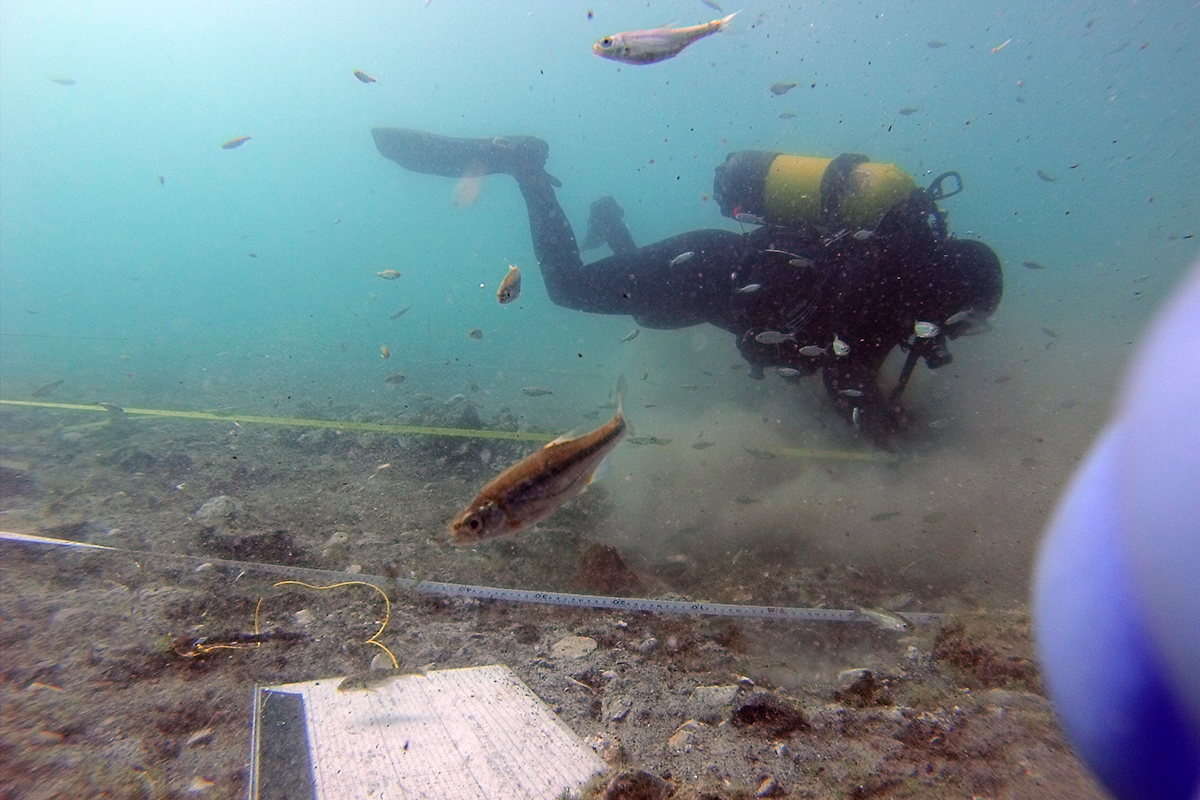
Why are you interested in ecosystems from the past?
We can extrapolate unique insights from reconstructions of past ecosystems that we urgently need today. Without research into past ecosystems, it would be impossible to say which plant species and plant communities are natural to Europe, for example. Past ecosystems also give clear, unique insights into the way in which these species and communities react to large climate changes – such as a temperature increase of +3° C over 50 years – awaiting us in the near future. With this information, we can’t just support conservation efforts, we can also improve measures for the preservation of important benefits of ecosystems in the future: the production of wood, for example.
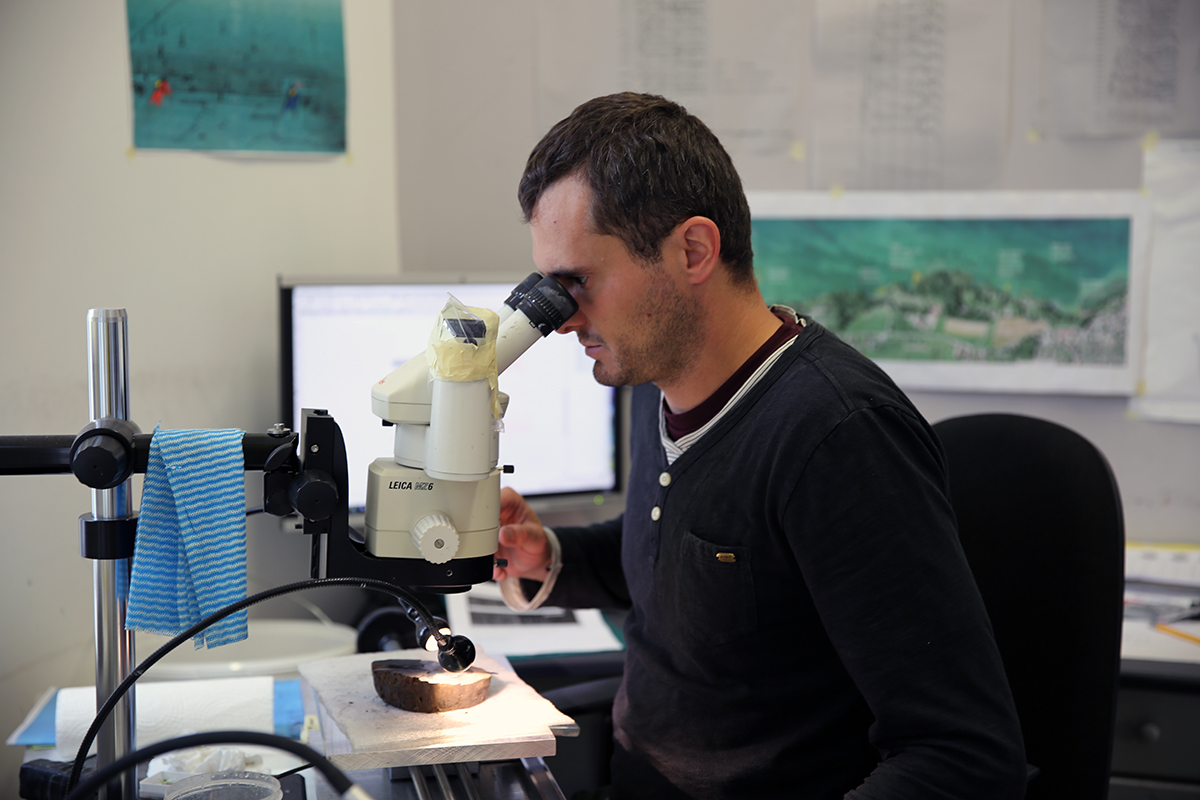
Albert Hafner, what fascinates you about underwater archeology?
Albert Hafner: I’m researching early agrarian societies by investigating Neolithic and Bronze Age settlements whose ruins today lie underwater in lake bed sediments. The preservation conditions for organic material are extraordinarily good underwater, and they provide information that you can’t find in the ground on land. To reach these settlement remains, you need to work underwater. It’s fascinating to be able to recover not just ceramics and artifacts, but also 6,000-year-old components made of wood which are still intact right down to the cell structure level.
What is so special about the settlements in the investigated lakes?
That we don’t know precisely what’s actually waiting for us. A pilot study in the summer of 2018 showed that we will encounter conditions at least as good as those in the lakeside settlements in the Alps (and this has been a UNESCO World Heritage Site since 2011). There have been intensive archeological investigations in the lakes and moors in the Alps for more than 150 years. With the EXPLO project, we’re advancing into completely uncharted territories in the lakes in the Southern Balkans. We are in the cradle of European farming. Agriculture and livestock farming spread out from here across the Danube region and the western Mediterranean towards Central and Western Europe.
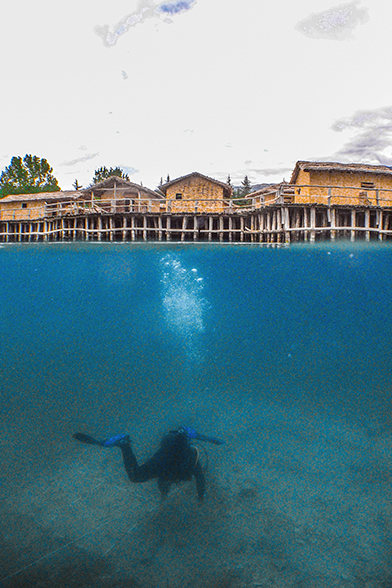
How did the collaboration with the paleoecologist Willy Tinner and the Universities of Oxford and Thessaloniki come about?
Willy Tinner and I have been working together for a long time at the Oeschger Center for Climate Change Research at the University of Bern. We worked together on an international SNF project with partners in Germany and Austria. I ended up in the Balkans because I had gotten involved in an archeological rescue excavation program in Northern Greece. Archeological sites there were preemptively excavated as they were in the way of the lignite mining. The result of that was that Kostas Kotsakis from the University of Thessaloniki and I oversaw doctoral candidates together. We specifically targeted Amy Bogaard from the University of Oxford as she had precisely the knowledge in archeobiology that we were looking for.
What does the ERC Synergy Grant mean for the project, the University of Bern and for you personally?
Archeological research has always entailed high costs as excavation materials are needed, from vehicles and photographic equipment to microscopes and, in our case, diving gear. In addition to that you have the huge costs for carbon dating and a lab for tree-ring dating. Without funding from the ERC Synergy Grant, the project would not have been feasible. It is a recognition of the previous research on prehistoric lakeside settlements, which is attracting a lot of interest internationally, and is the first ERC Synergy Grant to go to the University of Bern. I’m very happy and would like to thank the University of Bern for their start-up support in the form of an "interdisciplinary grant" – and especially everyone who was involved in the pilot study at Lake Ohrid in 2018.
EXPLO project
EXPLO, which was initiated by Albert Hafner and Willy Tinner from the Oeschger Center for Climate Change Research (OCCR), University of Bern, wants to investigate prehistoric settlement sites at lakes and shore areas. Thousands of wooden building structures have been preserved here. This wood is used as a base for dendrochronology, a method which uses the growth rings of oak and conifer trees to work out the age of the wood. This method allows for a highly precise dating and is the backbone of the project. Excavations and sample collections are planned in the large lakes; Ohrid, Prespa and Orestiada. All these sites are in an area of great historical and cultural interest: it was here that agricultural techniques from Western Asia reached Europe more than 8,000 years ago. The analysis of lake sediments should show how land use as well as the climate conditions in this region have changed over time. Teams from the University of Bern performed test drilling and excavations in the lakes in Northern Greece and in Lake Ohrid in 2016 and 2018. These tests showed that the sediment cores collected represented an incredibly rich environmental archive and that the archeological sites were of the highest quality. In assessing the data sources collected by EXPLO, more than 1000 items will be carbon dated in the OCCR’s C14 dating laboratory.
ERC Synergy Grants
EXPLO is one of 27 European projects which have been awarded an ERC Synergy Grant this week. This ERC Synergy Grant is the highest level of the Excellence Funding of the European Commission. The generously equipped funding instrument supports interdisciplinary projects, which must satisfy the highest scientific criteria, and is highly coveted among researchers. Less than 10 percent of the applications submitted are approved. The "Synergy Grant" was given out for the second time and was awarded to the University of Bern for the first time.
ERC Synergy Grants enable two to four principle investigators and their teams to bring together additional expertise, skills and resources in innovative ways in order to jointly tackle complex research questions. The applicants have to provide evidence that they can only achieve new breakthroughs with a synergistic team – and that they would not achieve this alone.
Prof. Dr. Willy Tinner
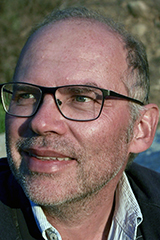
Prof. Dr. Willy Tinner is the co-director of the Institute of Plant Sciences at the University of Bern, leader of the Paleoecology section, and member of the Oeschger Center for Climate Change Research.
Contact
Prof. Dr. Willy Tinner
Oeschger Centre for Climate Change Research (OCCR), University of Bern
Telephone: +41 31 631 49 32 / E-Mail: willy.tinner@ips.unibe.ch
Prof. Dr. Albert Hafner
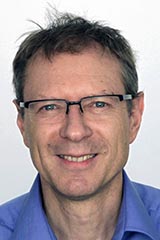
Prof. Dr. Albert Hafner is the co-director of the Institute for Archeological Sciences (IAW) at the University of Bern, leader of the Department for Prehistoric Archeology, and member of the Oeschger Center for Climate Change Research.
Contact
Prof. Dr. Albert Hafner
Oeschger Centre for Climate Change Research (OCCR), University of Bern
E-Mail: albert.hafner@iaw.unibe.ch
ABOUT THE AUTHOR
Nathalie Matter is an editor at Media Relations in the Communication and Marketing Office of the University of Bern.